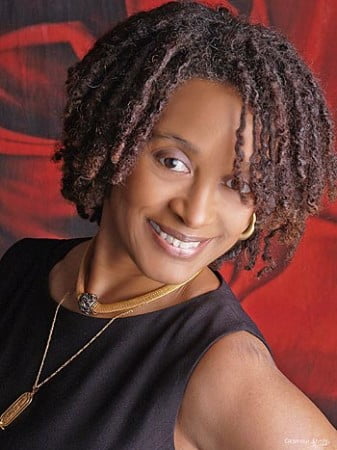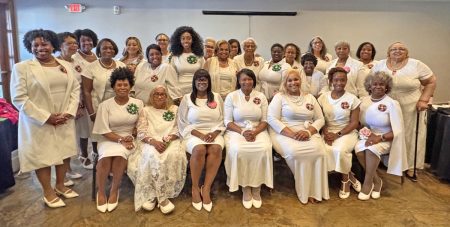Know Your History

by Meta Commerse
President Obama’s leadership is astounding.
A friend of mine refers to him as the “Jackie Robinson of the Presidency!” Against inconceivable odds, he keeps the moral high ground and clings tightly to the vision of America’s founding ideals. Though the relentless, bruising, crushing backlash he has met has been painful to witness, Obama’s undaunted example inspires us to persist, to draw upon the determination and resiliency of our ancestors and keep going.
When he spoke of invoking his executive powers in his recent State of the Union address, some asked what took so long. Yes, under extraordinary duress, awakening can take time.
Such extraordinary duress makes identity our primary challenge. To trace our footsteps across the last eighty-eight Februaries is to find proof. We start with Negro History Week, 1926, go to Negro History Month, 1976, then to African American History Month, circa 1990, and find not only a progression in the space/time allotted to honor the contributions of our people but, with that, the slow, gestational reclamation of our collective identity and worth.
We began with just one week to cram all of this in, when images of people who looked like us suddenly appeared on the bulletin boards in our schools, and their names and achievements became important. After the Civil Rights era, after the opportunity to share in some parts of the American dream had been won, the entire month was designated for celebration. Then, in the last decade of the twentieth century, we took our name back. Under extraordinary duress, awakening is rebirth.
Without the knowledge of our history, the deepest questions of identity fester and divide us. This is clear in our gender wars. We still exclude and bash gay people. This is clear in our class wars (“Afristocracy” versus “Ghettocracy,” à la Dyson), even clearer by today’s embarrassing “styles,” as many pairs of pants might as well remain unworn. Clearest when Melissa Harris-Perry reports today’s black woman’s disposable income as five dollars.
Identity questions haunt us as we consider the rate at which our youth fail and die violently in urban areas. A recent segment on National Public Radio included precious voices of Lorraine Hansberry in 1964, and a youthful Henry Louis Gates proclaiming, “The blackest thing we could do when we were young was to be like Thurgood Marshall…and so we went to college!”
In our generation and those prior, young people, mindful of our plight, were willing to study hard, make themselves exemplary, and even die for that cause. Today’s youth just die. And die. And die, pants down. No cause needed.
Norman Maclean wrote that “it is when one writes the story that one will know what happened.” Toni Morrison said, “We must write the books we need to read.” We must write so clearly that our plight becomes undeniable, crystal clear evidence that there has never, ever been any separation between its political, social, and economic aspects in our struggle to survive, heal, and be well in America.
In a system not constructed for our success, those among us who find ways to create wealth not only demonstrate genius, but do so standing in the vortex of supernatural forces conspiring to change and uplift. This is where our president insists upon standing.
Just as we have experienced an economics that scraped the very skin from our sense of self from the time of our ancestors’ captivity until today, so now we find both wound and gift. When it comes to money’s power in this culture, whatever made us think we could master it despite our stolen identity?
Madame C.J. Walker was not the first woman millionaire in the U.S. because she was clever, creative, and bold. Her audience captive, she earned that status—once her people were convinced that their hair needed changing—by showing up to change it.
Under extraordinary duress, our entrepreneurship is both necessity and miracle. To perceive the intimate relationship between money and the self in this realm is to awaken. To awaken is to be born again, to tell the untold stories, to heal, to remember who we are, and, when we are able, to forgive.
Ashé
Meta Commerse, M.A., M.F.A. is Director of Story Medicine of Asheville, a unique healing program. She is also an author, activist, and public speaker. Meta is also a professor of English and History at Haywood Community College. Her novel, The Mending Time, is forthcoming. Meta is available to speak to your group on the healing power of story and other topics of interest. Contact her on Facebook.








This is an extraordinary, thought provoking piece. I hope this is read and re-read by Black and White, and young and old for as wide as your audience can reach. Mr. Obama is in the process of teaching us all, how to turn the other cheek, while going full steam ahead. I enjoy your insightful editorials, they are very well written. A Pulitzer may be in your future Ms. Commerse.